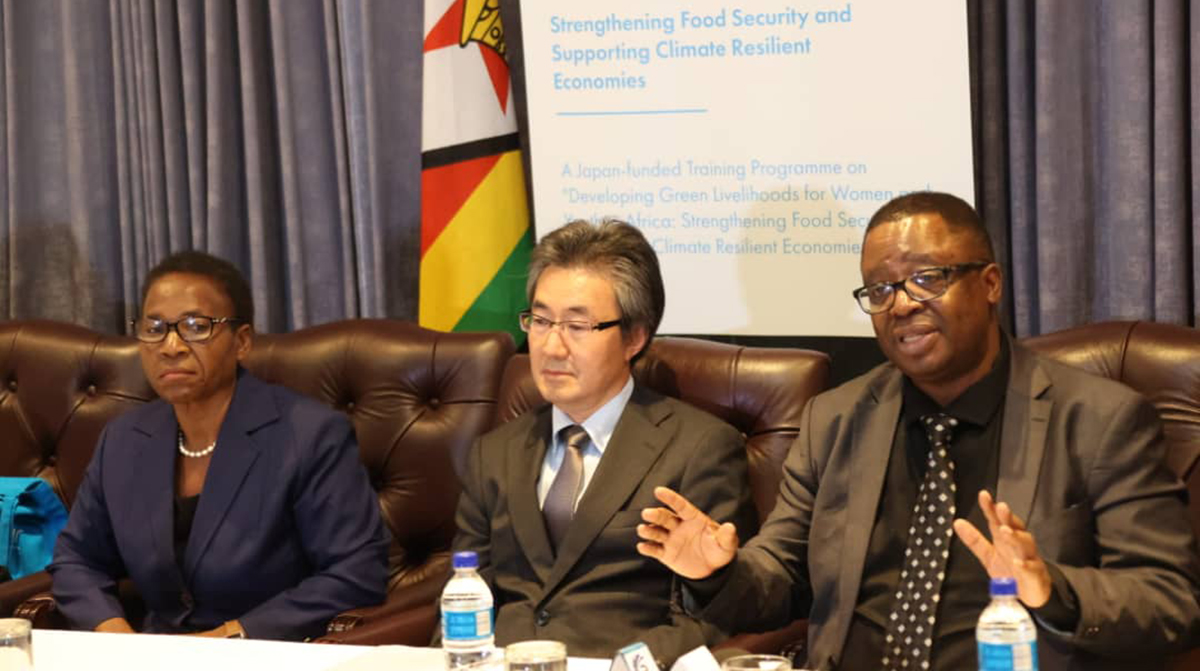
How UNITAR is empowering young Zimbabwean women to embrace sustainable practices and thrive in the digital economy
Amidst the verdant landscape of Zimbabwe, a vital program is nurturing the seeds of a brighter future for women and youth. UNITAR’s Developing Green Livelihoods for Women and Youth in Africa, funded by the generous support of the people of Japan, is empowering young Zimbabweans to embrace sustainable practices and thrive in the digital economy.
On Thursday, the 18th through to the 19th of January, the United Nations Institute of Training and Research hosted a momentous Green Livelihoods and Digital Skills mid-programme meet and greet for the Zimbabwe cohort. This event served as a vibrant platform for participants to showcase their progress, network with stakeholders, and celebrate their journey towards building climate-resilient livelihoods.
The gathering was graced by distinguished guests, including His Excellency Shinichi Yamanaka, Ambassador Extraordinary and Plenipotentiary of Japan in Zimbabwe. Ambassador Yamanaka expressed Japan’s unwavering commitment to empowering women and youth, highlighting the significance of this program in addressing climate change and fostering sustainable development.
He emphasized, “We cannot talk about development without embracing the digital economy. This project is about ensuring women and youth are on board, to enable their active participation in the nation’s economic growth.”
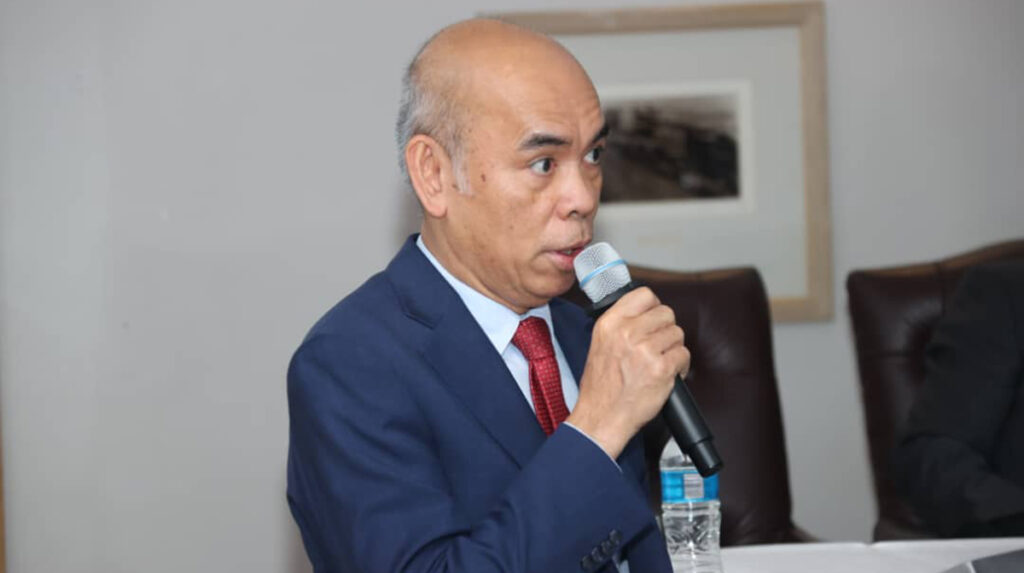
Also in attendance were representatives from the Ministry of Youth Empowerment, Development and Vocational Training, Ministry of Women Affairs, Community, SMEs Development and the Ministry of Environment, Climate and Wildlife. The financial sector was well represented as well by members of the Zimbabwe Women’s Micro Finance Bank (ZWMFB), Small and Medium Enterprises Development Cooperation (SMEDCO) and the Youth Empower Bank.
The Government of Zimbabwe through its delegates echoed support and similar sentiments of the program’s mandate. The Permanent Secretary of the Ministry of Environment, Climate and Wildlife recognized the value of partnerships, knowledge sharing, and resource mobilization in addressing the challenges posed by climate change.
“In the face of this unprecedented global challenge, collaboration is not a luxury, but a necessity,” he declared. “And within that collaboration, let us remember the vital role played by women. They are the stewards of our natural resources, the innovators forging green pathways, and the backbone of sustainable communities.
The Permanent Secretary of the Ministry of Information, Communication and Technology Dr Chirume emphasised the importance of collaboration with international and local partners. He said, “The digital economy is not just the present but the future, hence the importance of the collaboration and ensuring inclusion, particularly of women and youth, who drive economic development.”
The Program
Over the past six months, participants have embarked on a transformative journey, honing their entrepreneurial and digital skills through a meticulously designed program. The initiative unfolded in three distinct phases.
Between September and December of 2023, participants embarked on self-paced e-modules, engaging in webinars, and receiving online coaching and mentoring support, laying the groundwork for their entrepreneurial endeavours.
This was followed by a self-led virtual boot camp between December 2023 and January this year which equipped them with newfound knowledge. Participants translated theory into practice by developing self-led projects that addressed pressing development challenges or promising livelihood opportunities. Virtual boot camps provided further guidance and fostered a spirit of collaboration.
The final phase due in February 2024 will equip participants with essential community-building and leadership skills, empowering them to become agents of change within their communities and establish a robust network of trainers for future cohorts.
Stories of Transformation: From Vision to Reality
Beyond the statistics and program structure, the true essence of this initiative lies in the inspiring stories of the participants. Each individual brings a unique tale of resilience, innovation, and unwavering determination to the table.
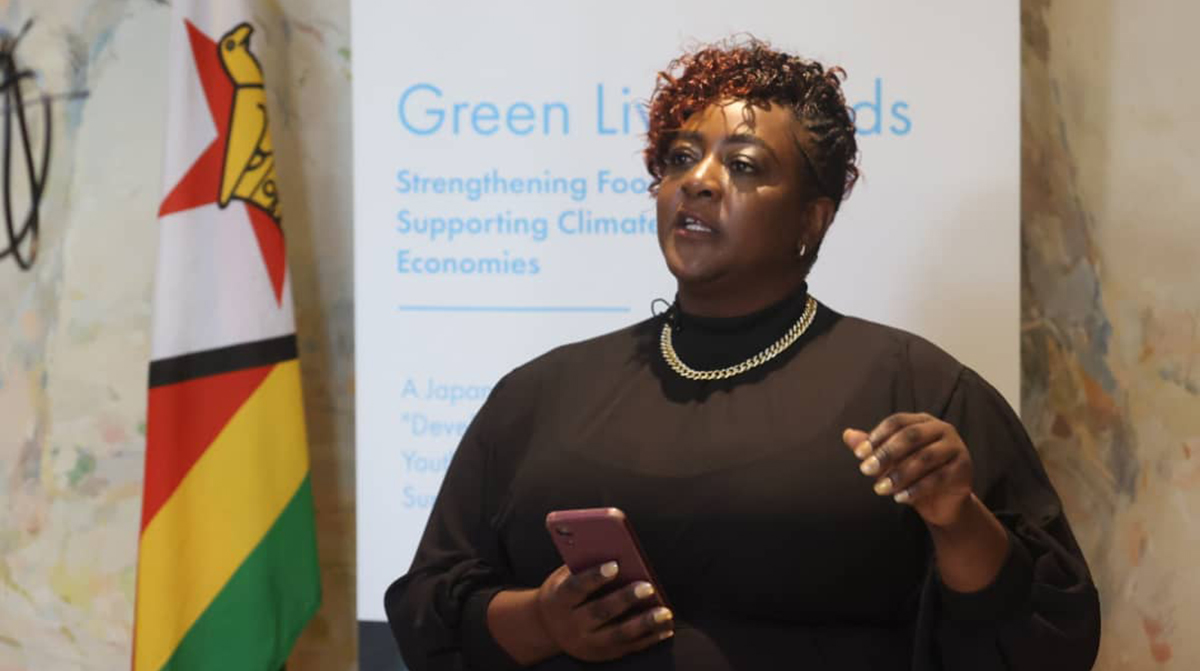
Meet Chioniso Nyamurokoso, who comes from a family of farmers. She has always aspired to add to the agro enterprise value chain by establishing a world-class vegetable processing plant in Zimbabwe. The green livelihoods program had a pivotal role in her business Lush Veggies.
Chioniso Nyamurokoso, a green and healthy eating entrepreneur
“Through the program, I was exposed to a community of like-minded individuals who generously shared their knowledge and experiences. This environment allowed me to gain wisdom and establish valuable collaborations and friendships with fellow participants,” recalls Chioniso.
At the end of the program, she plans to establish and lead environmentally conscious enterprises that prioritise sustainable practices. “Leveraging the skills acquired through the program, I aim to integrate green livelihood principles into the core of my business operations, ensuring that sustainability and environmental stewardship are fundamental to the organization’s mission.”
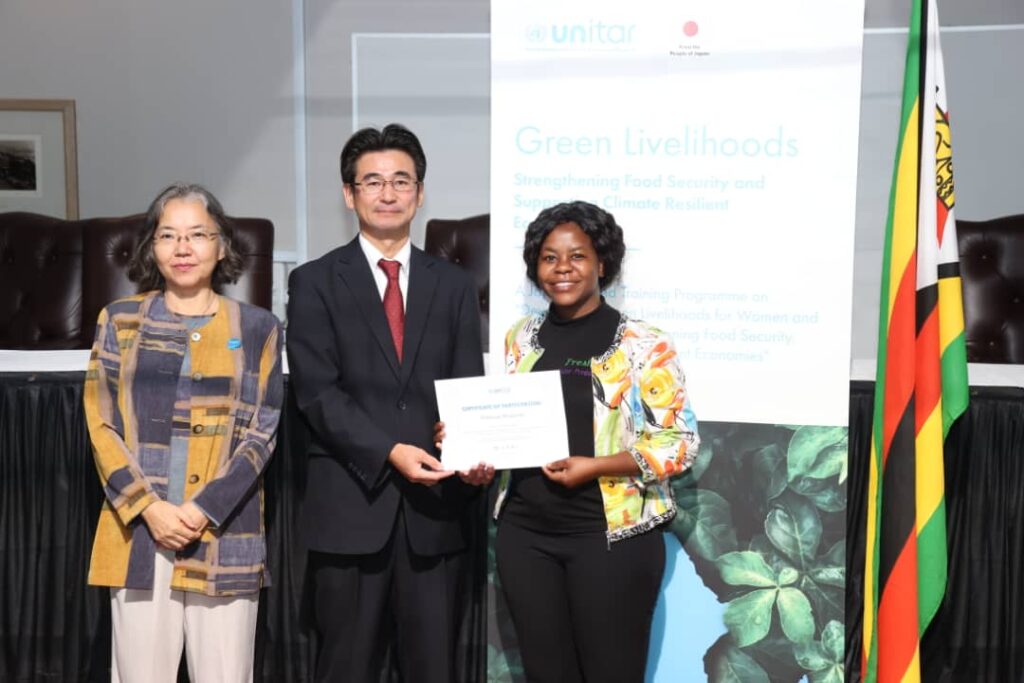
Meet Precious Mudondo an entrepreneur passionate about farming and agriculture, information technology and renewable energy. She has over 14 years of experience working at Fresh Value Produce which was established in 2013.
Precious Mudondo, an agro entrepreneur
It is an agro-business dedicated to growing and distributing agricultural produce to various markets within Zimbabwe. One of her challenges before becoming part of this programme was access to land, especially being a woman living and operating in a patriarchal rural Zimbabwe.
“This has seen me procuring land and losing it not once as well as lack the proper infrastructure to scale up our operations’ she said. However, the meet and greet opened to her possible new doors that could remedy the challenges faced before.
She goes on to say, “I was happy to meet with the Zimbabwe Women’s Bank and the Empower Bank representatives, whom we are still to work with on various projects.”
“In addition, I was able to engage and network with various stakeholders during the meet and greet session. It was the best networking experience for me as I have already started collaborations with some of my colleagues,” says an excited Precious.
She also expressed gratitude to the service providers who brought in a wealth of knowledge and information about leveraging technology to push farming forward by ‘greening’ her products and processes.
It is knowledge she plans to share with her community. “I am going to implement and impart to others so that we green our communities, reducing our carbon footprint whilst increasing yields.”
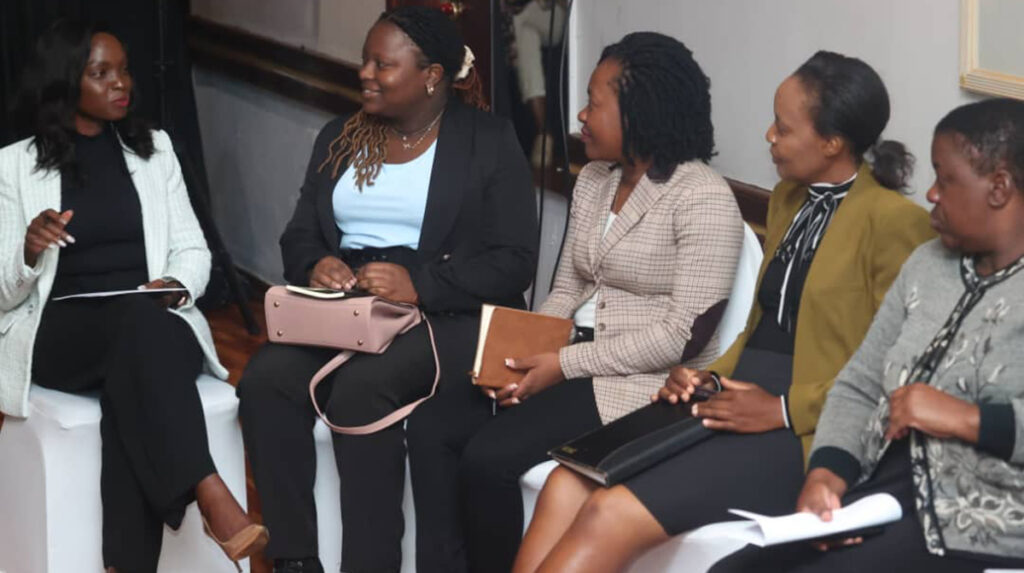
Reflecting on her past, Mutsa admits, “I was a knowledge hoarder, clutching information without purpose. My digital skills lay dormant, unaware of their power to impact society and the economy.”
Mutsa Muzamindo, a digital native
Empowered by the newly found knowledge advocated for paperless booking and ticketing systems at her workplace that use QR codes. She plans on building a service provider directory app which will revolutionise the service industry.
Mutsa’s message rings loud and clear, “digital skills are the elixir of development! They ignite employability for women and youth, transforming tasks like cattle herding into feats of technological wizardry. Where maybe one-day drones shall shepherd your herds. So I implore you, women and youth, to embrace every digital opportunity! Let your skills blossom and paint a brighter future for all!”
These are just glimpses into the lives ignited by UNITAR’s program. Ambassador Yamanaka’s words resonate: “Investing in women and youth is investing in the future.” The project, fueled by Japanese generosity, is not just about skills training; it’s about nurturing green shoots of hope and planting the seeds of a digitally inclusive future in the heart of Zimbabwe.
Building a Network of Changemakers
The green livelihoods & digital skills mid-programme meet and greet was more than just a celebration of individual achievements; it was a vibrant tapestry woven from shared experiences, collective learning, and an unwavering commitment to a sustainable future.
“Japan has proudly exceeded our initial commitment, contributing over one million USD to this crucial project,” declared Ms Chisa Mikami, Head of the Division for Prosperity in the Hiroshima office. “Empowering women and youth through green livelihoods and digital economies is not just a worthy cause, it’s the foundation for a brighter future. This additional funding reflects our unwavering dedication to their success.”
The connections forged during this event will undoubtedly blossom into a powerful network of changemakers, driving progress not only within their communities but across the nation.
UNITAR’s work in Zimbabwe is a powerful reminder that investing in the potential of women and youth is not merely a moral imperative, but a strategic investment in a more sustainable and prosperous future.
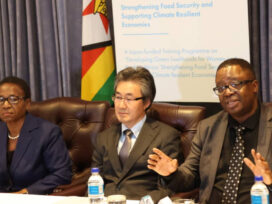

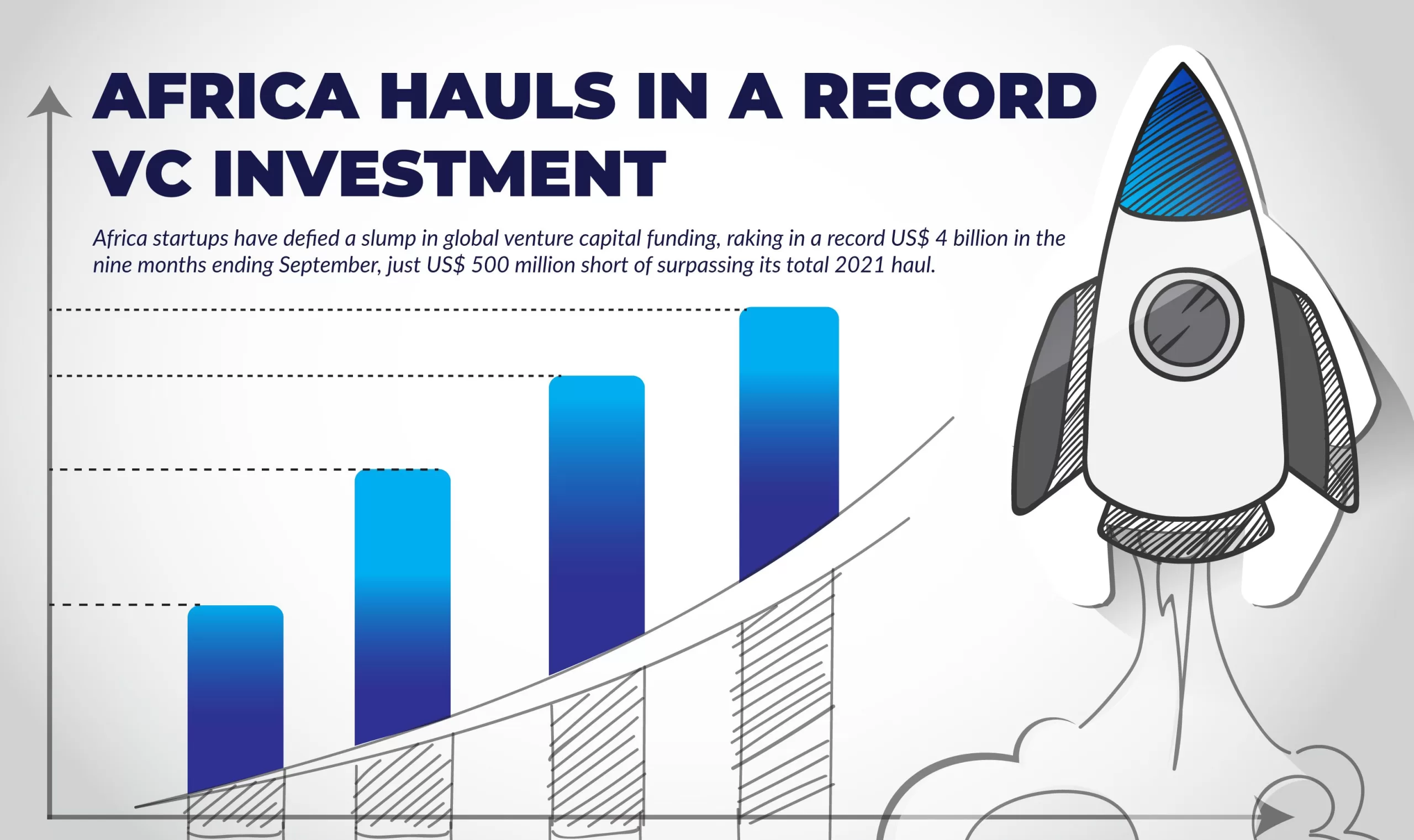
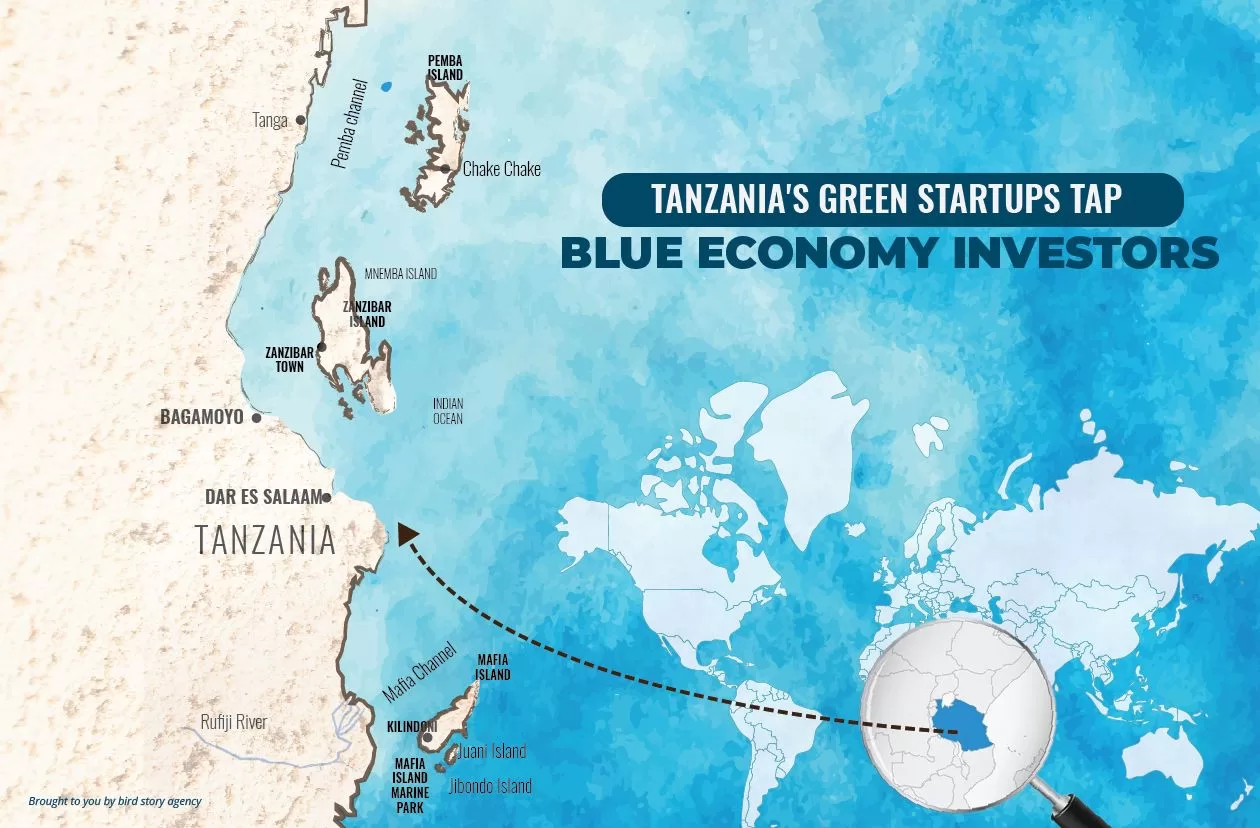

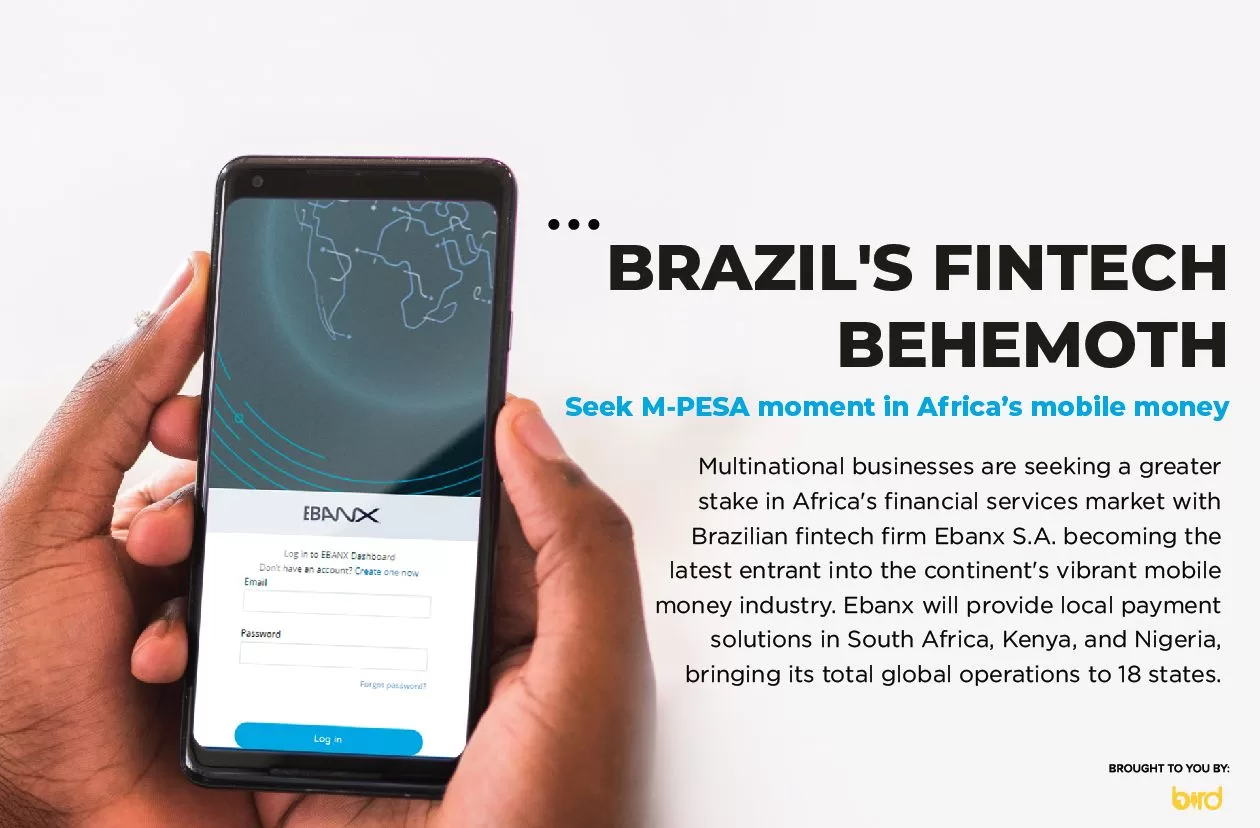
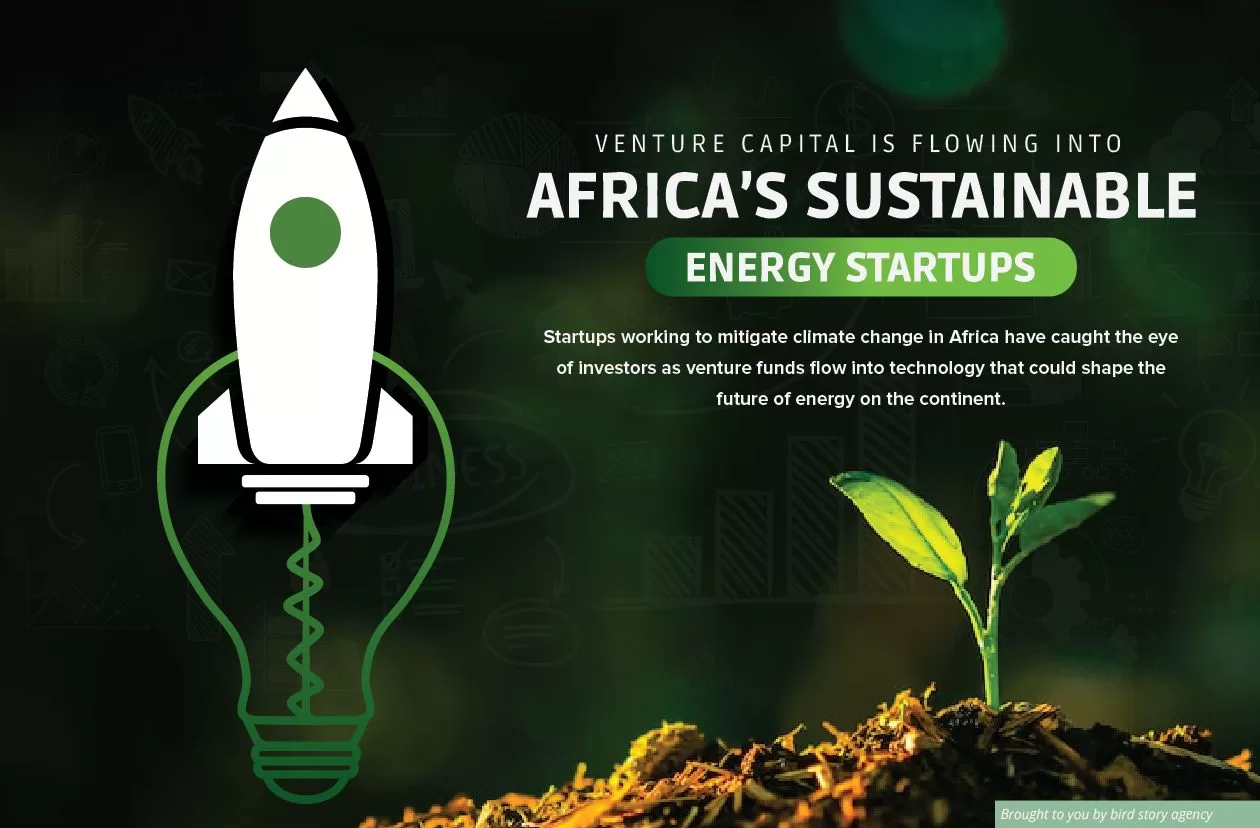
1 thought on “How UNITAR is empowering young Zimbabwean women to embrace sustainable practices and thrive in the digital economy”